
The Free Press

Between 2017 and 2019, just about the only story Washington cared about was whether Donald Trump would be nailed by the Justice Department for treason. After all, he had worked with Vladimir Putin and his cronies to win the White House, hadn’t he? And yet, at the end of a three-year investigation into this supposed collusion, Special Counsel Robert Mueller’s team charged no American with conspiring with Russia to influence the election. His final report said the investigation “did not establish that members of the Trump campaign conspired or coordinated with the Russian government in its election interference activities.”
Most Americans have moved on from this insanity. But a handful of true believers won’t stop believing.
Chief among them is Christopher Steele, the former British intelligence officer who kicked off the debacle in the first place. It was Steele’s private intelligence reports, commissioned by Hillary Clinton’s presidential campaign, that connected Russia’s hacking and social media meddling in 2016 to the Trump campaign. When his dossier was published in early 2017 by BuzzFeed, Washington went nuts.
Now, seven years later, the disgraced spy is back, offering no contrition for the damage he did to American politics or the time wasted by the FBI chasing his junk intelligence.
This week Steele has released a new book, Unredacted: Russia, Trump, and the Fight for Democracy, published by HarperCollins, which claims to be “a searing new report on the threat Putin and Trump pose to democracy.” In the book, Steele says he was largely right and is the victim of the very institutions he was trying to help. What’s more, he says, he now has even better intelligence about the Kremlin, and he’s ready to share the goods.
Steele writes that when his dossier was published, “It did have an unexpected upside. . . . Since then I have had even better access to sources of information and intelligence on Russia that arguably give me a rather privileged view of what’s going on inside the Kremlin.”
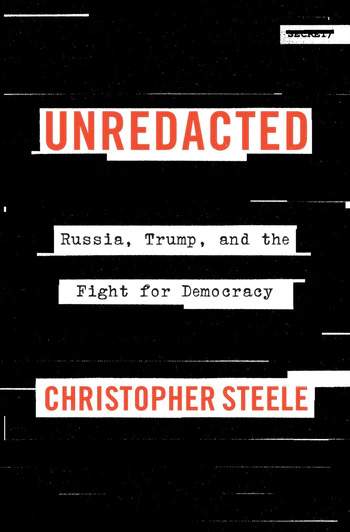
So what is this great insight into Russia that Steele gleaned from his “rather privileged view”? Well, it turns out that Russia sought to smear President Joe Biden by dredging up his son Hunter Biden’s buckraking in Ukraine. In fact, Steele claims that his intelligence network predicted Russia would inject a mix of true and false information about Joe Biden in the run-up to the 2020 election.
And what do you know? In October 2020, the New York Post broke a series of stories based on Hunter’s laptop. These scoops disclosed emails and text messages that revealed Hunter’s efforts to capitalize on his father’s name to win business contracts with China and Ukraine as well as uncovered his troubled relationship with his family as he struggled with drug addiction. Swiftly afterward, more than 50 former U.S. intelligence officials claimed that the laptop’s contents were likely a Russian influence operation. And, Steele writes, this was the very influence operation his intelligence network had warned about.
“On cue, a ‘late development’—the supposed anti-Biden kompromat, as our sources had foretold—landed on October 14, in the form of a front-page New York Post story with the headline ‘Biden Secret Emails,’ ” Steele writes. “The story was purportedly based on data obtained from the hard drive of a laptop the paper claimed had belonged to Hunter Biden.”
Purportedly? Steele writes as if the provenance of the laptop and the information it contained has not since been confirmed by the FBI itself.
Not only did the laptop really belong to Hunter, the government used material from it in an indictment against the president’s son this year.
Beyond that, Steele’s broader story about his own intelligence network in Russia doesn’t hang together. For example, he howls that the FBI failed to stop Trump and Republican members of Congress from declassifying interviews Steele gave to the FBI about his sources in the dossier. When some of those transcripts were declassified in 2019, Steele writes, “Soon after that, two of our sources in Russia—who were named in the transcript—went silent. We have not heard from them since, nor have we received any information about them.”
Here’s a question for Steele: How can it be that the exposure of his skulduggery from 2016 has helped him further penetrate the notoriously opaque Kremlin if these sources are no longer talking to him?
The entire affair has embittered Steele. “When the chips were down in our case,” he writes, “the FBI could not be relied upon.”
And this brings us to the most astounding aspect of Steele’s book. He has nothing but praise for Igor Danchenko, the middle-aged contractor he sent to Moscow to collect the initial intelligence on Trump and Russia. Danchenko is a Russian émigré living in Washington who had done research for Steele in the past as well as for the Brookings Institution. His research in 2016 on Trump-Russia, we would learn in 2023 from Special Counsel John Durham’s report, consisted of traveling to Russia and meeting with people over drinks. Not top intelligence or military officials, but young professionals, one of whom was angling for a job in the Hillary Clinton administration.
Steele doesn’t even bother to take on the substance of Durham’s findings or an earlier report from Justice Department Inspector General Michael Horowitz. Both investigations found that the FBI could not verify anything of value in Steele’s and Danchenko’s intelligence reporting. Durham also uncovered that the FBI had investigated Danchenko for being a Russian spy in 2010 and never bothered to resolve that investigation even after the bureau put him on the payroll in 2017.
So it’s remarkable that Steele casts Danchenko as the victim after a jury acquitted him for lying to the FBI. “Igor’s acquittal did not erase the hell that Durham had put him through,” Steele writes. “Igor had had to wear an ankle bracelet for a year, was not allowed to leave the greater D.C. area without formal permission, and had racked up huge legal expenses. He found it difficult finding work for a while and still lives in fear of physical attack from either Kremlin agents or MAGA Trump fanatics.” Those are undoubtedly hardships. But one wonders why Steele wasn’t furious at a subcontractor who passed off flimsy intelligence.
The real problem with Durham’s investigation, Steele tells us, is that it turned much of the press against Steele and Orbis, the private intelligence firm that Steele co-founded in London in 2009. “It was not just the trashy newspapers and the Murdoch-owned Wall Street Journal that fell into this trap,” Steele writes of the media’s reception of Durham’s investigation. “The coverage of Orbis and our work by normally respectable outlets like The Washington Post and The New York Times also changed. They seemed to accept Durham’s indictments of Igor as the conclusive assessment of our unreliability.”
These are the words of a man trapped by his delusions. For most of the Trump era, Steele was feted by the elite press. (Just read this slobbering 2018 profile of the former spy in The New Yorker.) It was only when the narrative could no longer hold that the major media outlets belatedly began to write what a few of us had seen for some time. The Steele dossier was a steaming pile of disinformation.
But don’t take my word for it. Here is what Durham himself wrote about the intelligence collected by Danchenko for Steele on behalf of the Democratic Party: “It appears the FBI never gave appropriate consideration to the possibility that the intelligence Danchenko was providing to Steele—which, again, according to Danchenko himself, made up a significant majority of the information in the Steele Dossier reports—was, in whole or in part, Russian disinformation.”
That is a hard pill to swallow for a former spy who thinks he is the last line of defense against the Kremlin. In the end, Christopher Steele was duped by his prey. Even now, he can’t see it.
Eli Lake is a Free Press columnist. Follow him on X @EliLake and read his essay “How Republics Unravel: From Rome to. . . America?”
To support more of our work, become a Free Press subscriber today:


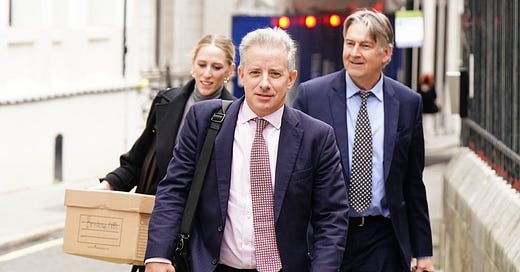




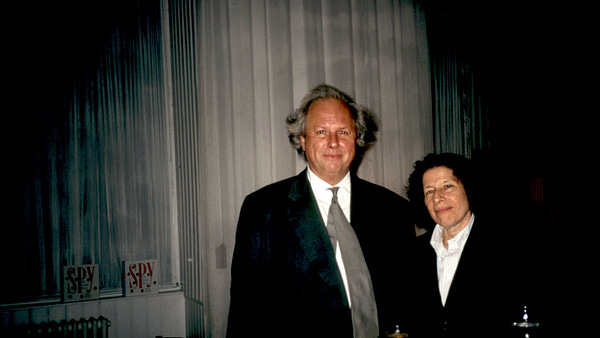

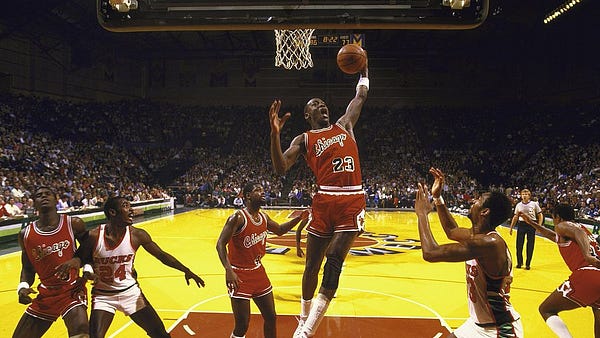




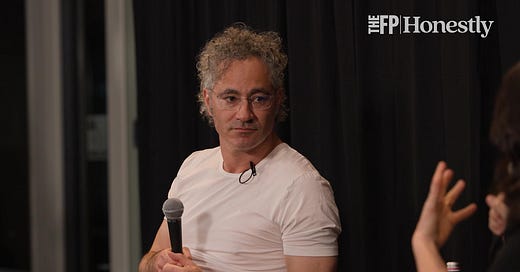
I wish these foreigners would stop spreading disinformation to influence our elections!
In the legal biz, lawyers often create evidence for whatever narrative they want to sell to a jury by hiring an "expert witness" - someone with suitable credentials willing to spin bits of fact and fantasy (as needed) into whatever tale he's paid to present. Behind closed-doors lawyers refer to such "experts" by another name for prostitute (the w is silent).
Steele was hired by Team Clinton for the same purpose in the context of a Presidential Campaign. Steele wasn't duped. Clinton wasn't duped. The FBI wasn't duped. (Doubtful the Media was duped - except to the extent they are willing to adopt as true, unquestioningly, anything that hurts Trump.)
The Steele dossier was supposed to be a Dirty Trick ... an October Surprise ... a diversion of attention away from Hillary's email server scandal. Why not paint Trump as a Putin stooge. (Could be believable -- Trump took that beauty pageant to Moscow, probably wants a hotel there, he likes tough-guys.) Hire an "expert" ... a professional spy ... get an "intelligence report" ... it doesn't have to stand-up to scrutiny ... just damage Trump now ... it'll all be forgotten once Hillary wins.